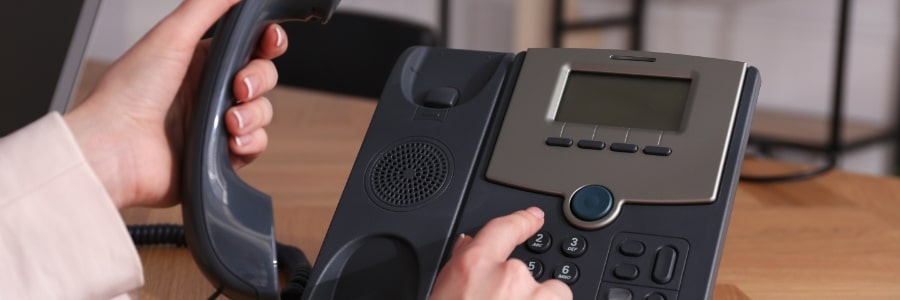VoIP has delivered incredible changes, not just to the telecommunications industry but to the business landscape in general. By combining flexible features with cost-effective communication solutions, VoIP is quickly replacing traditional phone lines in the workplace.
CONTACT SUPPORT
4 Questions to improve VoIP efficiency for the holidays

The holiday season brings with it an unavoidable challenge: the substantial increase in phone traffic that has the potential to overpower even the most extensive VoIP (Voice over Internet Protocol) systems. To prevent your system and employees from being swamped by the influx of customer calls, it becomes essential to optimize your VoIP system meticulously.
7 Tips to prevent VoIP downtime and ensure business continuity
Microsoft Teams and Google Meet: A comparison of video conferencing platforms
Things to consider when deciding between cloud and on-premises VoIP systems

The decision to adopt Voice over Internet Protocol (VoIP) systems is a transformative step for any business, enhancing communication, collaboration, and efficiency. However, the choice between cloud-based and on-premises VoIP solutions can be daunting, as each option comes with its unique advantages and challenges.
What makes VoIP phishing cybercriminals’ weapon of choice?

Voice over Internet Protocol (VoIP) phishing, a technique that involves manipulating VoIP technology to trick users into giving up sensitive information, has become a favored tool in every cybercriminal’s arsenal. But why is this so? Let’s take a look at the reasons scammers choose this nefarious activity over other schemes.
Which is better for your business, Microsoft Teams or Google Meet?

With so many online communication tools available, choosing the right one for your business can be daunting. But two platforms stand out in terms of functionality and ease of use: Microsoft Teams and Google Meet. So, which platform is right for you?
Call features
Microsoft Teams’ paid version supports up to 300 participants per meeting, while Google Meet’s paid version supports up to 250 participants.
Don’t let your VoIP calls be intercepted: Here’s how to protect yourself
5 Questions to ask before upgrading to VoIP

Voice over Internet Protocol (VoIP) services are revolutionizing the way businesses communicate by providing organizations with effective and consistent in-office communication for their value. But before you switch to VoIP, there are a few things you need to keep in mind:
What are your network needs?
When contemplating whether or not to get VoIP, it’s vital to determine how much control you need over your network.
Revolutionizing communication: The impact of 5G on VoIP systems

Are you a business owner looking to improve your VoIP (Voice over Internet Protocol) systems? With 5G technology, there are now more opportunities than ever to enhance your VoIP experience. In the following sections, we’ll look at how 5G can enhance the features and functionality of your VoIP systems to help your business thrive.




